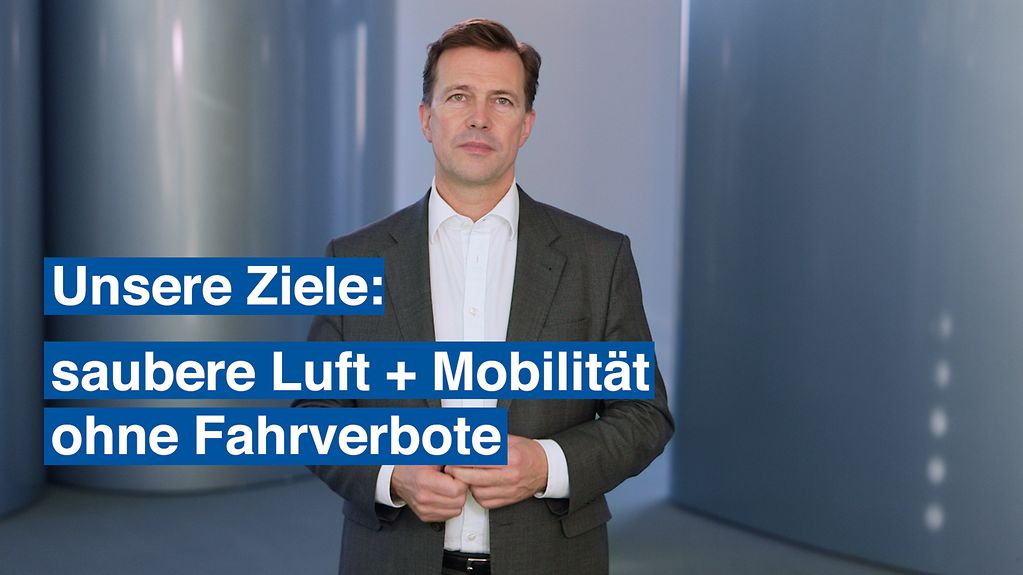Diesel - an overview
The air in German cities is getting steadily better. Since 1995 the average nitrogen oxides levels have fallen consistently. To further improve air quality, the German government is implementing an extensive package of measures. Here is an overview.
2 min reading time

Clean air and mobility without driving bans
Photo: Bundesregierung
The German government aims to reduce fine particulate pollution in towns and cities, while avoiding driving bans for owners of diesel vehicles. To this end the government is working closely with the federal state and local authorities.
Emergency "Clean Air" programme
In November 2017, the German government thus launched the emergency "Clean Air" programme. The government is providing one billion euros to help the affected local authorities implement measures to improve air quality more rapidly. They include switching to electric buses and taxis and special retrofitting for diesel buses to reduce exhausts.
In October 2018, the Cabinet adopted a framework for implementing clean air measures. To ensure that these can be implemented, the Road Traffic Act and the Federal Immission Control Act were recently amended.
New promotion package for local authority and delivery vehicles
To ease the financial burden on the towns and cities, the federal government will pay 80 per cent of the costs of retrofitting heavy local authority vehicles in the affected regions. This will embrace road cleaning and refuse collection vehicles, as well as skilled crafts and trades businesses’ vehicles and delivery vehicles. The promotion programme is to be launched before the end of 2018.
The industry’s responsibility
The German government also considers that vehicle manufacturers have a responsibility. They have pledged, by the end of 2018, to update the software of 6.3 million vehicles. More than half of this number have already been updated. The German government also expects the industry to offer hardware retrofits at the beginning of 2019, and to bear the costs.
Avoiding driving bans
The German government is optimistic that the combined efforts of the federal government, state governments, local authorities and vehicle manufacturers will be able to improve air quality in towns and cities, so that the air pollution limits can be respected in the long term. In municipalities in which levels are only marginally above the limits driving bans would be disproportionate and are thus not a consideration. In the 15 cities with the highest pollution levels, the German government is taking additional steps to support drivers of diesel vehicles. They will be able to swap their current vehicle for a cleaner new or second-hand vehicle at special rates.